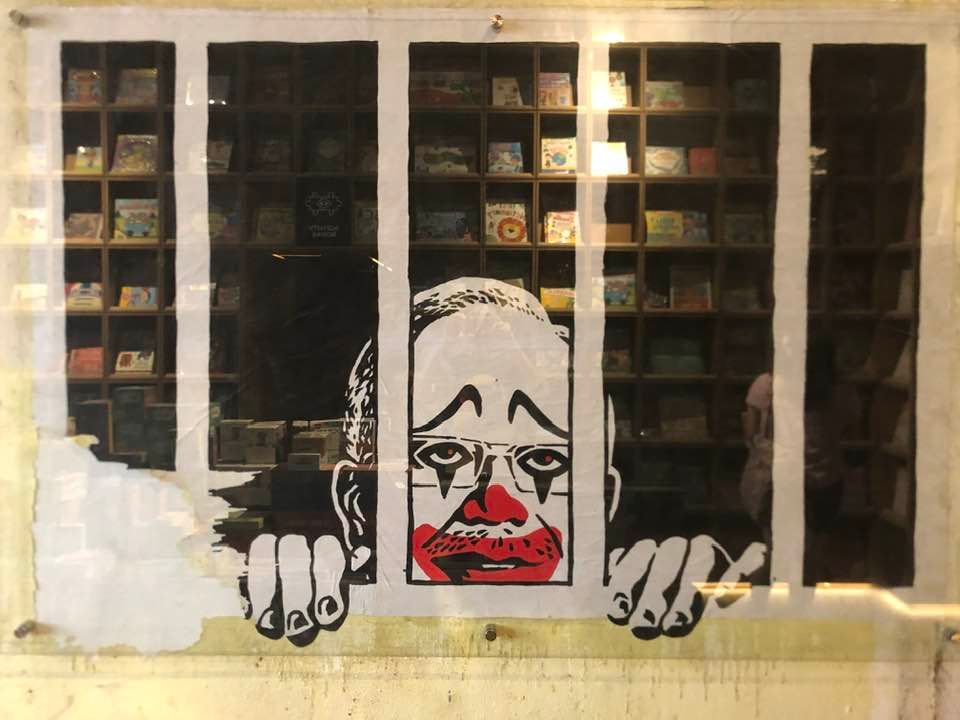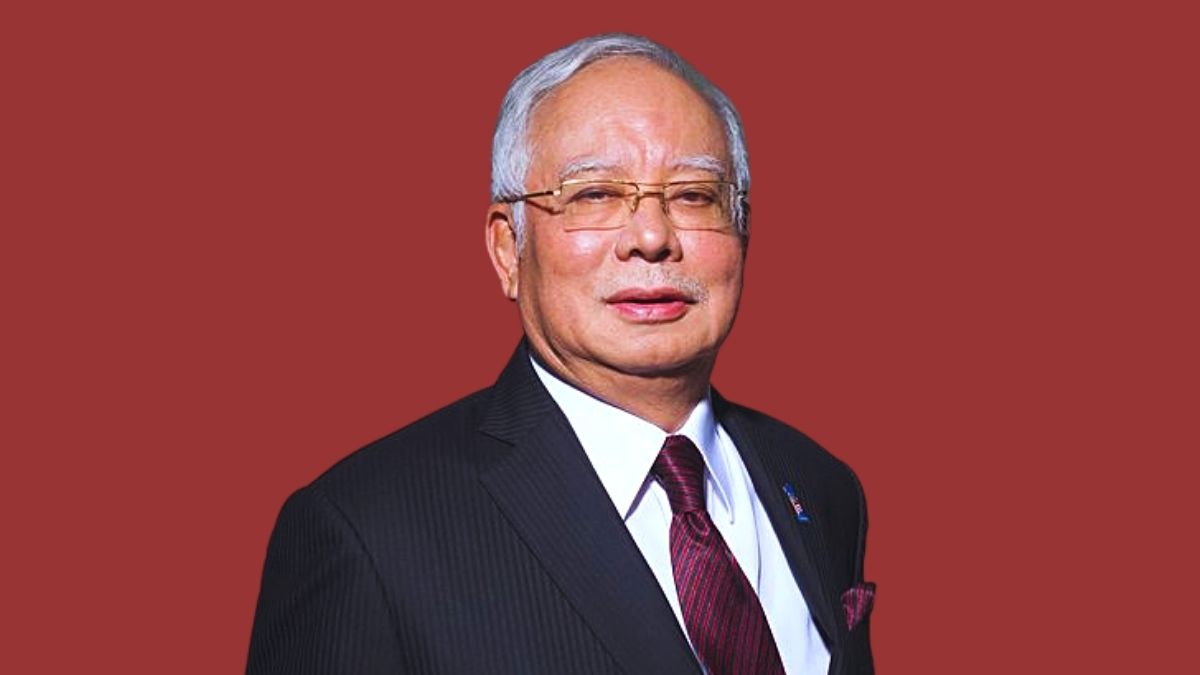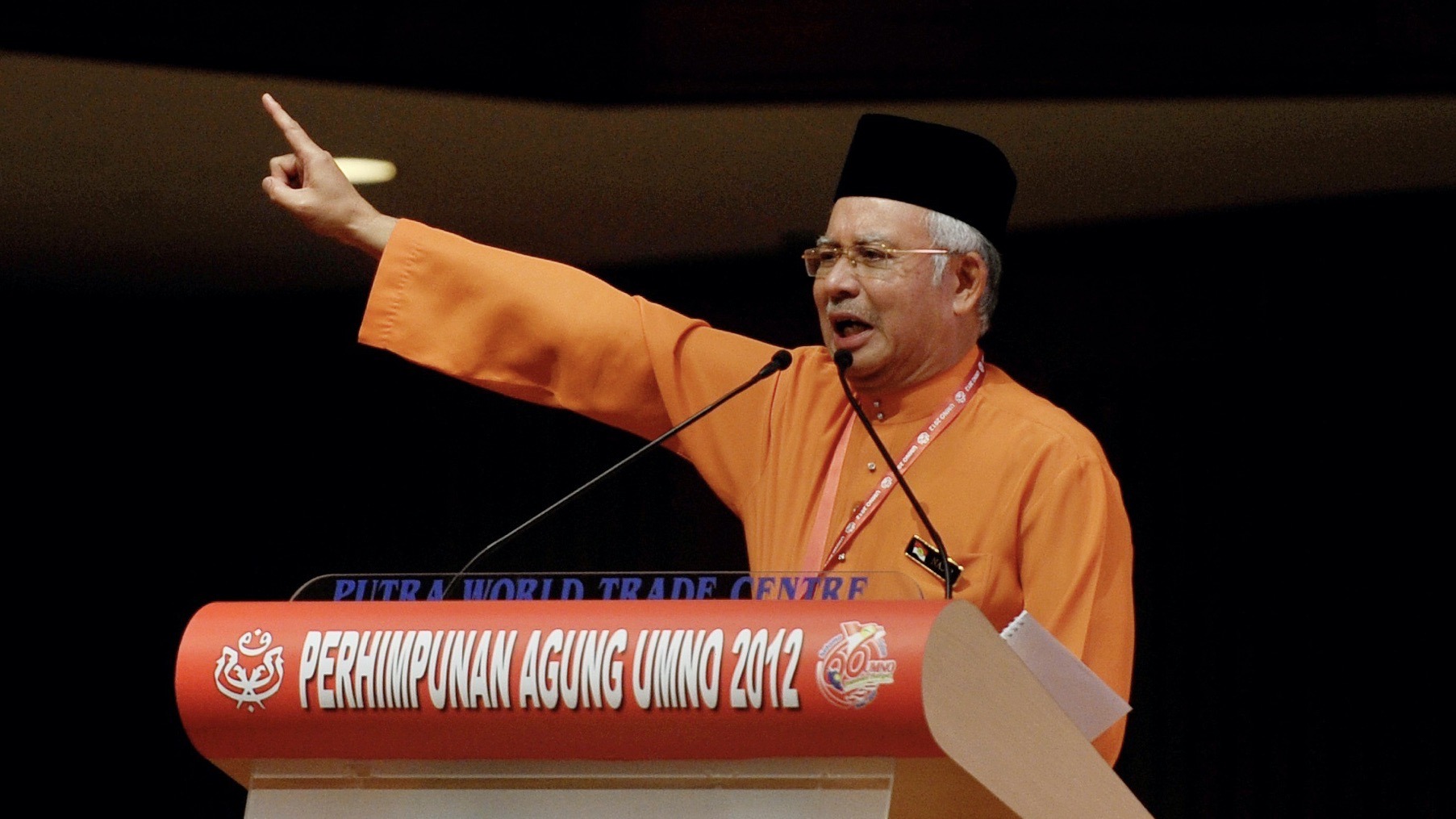The Victim

By Shaun Tan
Founder, Editor-in-Chief, and Staff Writer
28/8/2022

Artwork portraying former Malaysian Prime Minister Najib Razak with clown makeup and behind bars, by artist Fahmi Reza, displayed in a bookshop in Kuala Lumpur
When his final avenue for appeal against his corruption conviction was exhausted, when time and fate finally came for former Malaysian Prime Minister Najib Razak, he did what he does best: he played victim.
In a statement to the Federal Court before it announced its verdict, rather than argue the actual merits of his case, Najib claimed he’d been unfairly treated. He claimed he wasn’t given adequate time to prepare a defense (he was, though he deliberately squandered much of it by changing his lawyers late in the game). He claimed he wasn’t legally represented (he was, despite his lawyer trying to discharge himself in a failed bid to further delay proceedings). He claimed his lawyers did not effectively represent him (even though this was chiefly the result of them repeatedly refusing to make any submissions, probably at his behest). In short, he sabotaged his own defense and then held that up as proof that he wasn’t allowed a proper defense, as proof he’d been victimized.
It was a familiar routine. Asked to explain why 42 million ringgit ($9.4 million), stolen from a state fund under his purview, was sitting in his personal bank account, Najib claimed to be a victim of a scam masterminded by his co-conspirator, Jho Low. (As a reporter in Netflix’s documentary series Dirty Money noted, in order to rely on this defense, “Najib has to paint himself as a drooling idiot who was hoodwinked by a twenty-something-year-old.”) The extensive corruption charges against him, backed by investigations by the US Justice Department, were, he said, the result of persecution by his political enemies. When a journalist from Al Jazeera asked him about his corruption scandal, he fled mid-interview, whining petulantly: “You are not being fair to me!” In a self-pitying farewell note he apparently left on his desk for his family before the Federal Court verdict against him (but obviously intended for social media), he portrayed himself as a public servant who sacrificed for the good of the country. The overarching narrative is clear: good old Najib, family man, tireless servant of the people, unappreciated by the electorate that voted him out of office, slandered by the media, hounded by his political foes, and now imprisoned for crimes he didn’t commit. Poor him.

Najib (Picture Credit: Budiey)
The truth is that Najib is a wicked man who deserves his fate. He is a liar and a coward, a kleptocrat and a petty tyrant whose administration’s modest achievements were dwarfed by its villainy. As prime minister, he persecuted political cartoonists for lampooning him. He persecuted news publications that revealed how he was robbing the country blind. He fired the attorney general because he was on the verge of filing corruption charges against him. He fired his deputy when even he spoke out against Najib’s blatant pillaging of a state fund. He purged his party of everyone except fellow crooks and sycophants. He had teenagers arrested and paraded in handcuffs on national news for insulting his likeness, for failing to show him respect, a respect he felt entitled to but repeatedly refused to earn. He disgraced this country by making it the epicenter of the world’s biggest corruption scandal. The truth is that Najib got a fair trial, and for the past four years got to keep his freedom as he exhausted all legal means of defending himself – things he denied to others when he was in power.
Najib is a liar and a coward, a kleptocrat and a petty tyrant whose administration’s modest achievements were dwarfed by its villainy.
However, it’s also true that the role of victim seems to suit him. Strangely enough, Najib actually seemed to become more popular after losing power and being charged for corruption than he ever was as prime minister. Clumsy and painfully awkward, Najib never enjoyed a cult of personality, yet he suddenly had one now, hundreds of people hailing him as Bossku (my boss), sobbing at the court complex at his plight, insisting (without evidence) that he’d been framed. Why? It should be noted that the political coalition that dethroned him in the 2018 election and had him charged for corruption (Pakatan Harapan) was more multi-racial than the ethnic-Malay supremacist coalition Najib headed (Barisan Nasional). As prime minister, Najib was a bumbling oaf; as a victim, Najib was still a bumbling oaf, but one who was suffering at the hands of the multi-racial coalition, and who was thus a conduit for the anxieties of many Malay supremacists in the country, who feared that the minorities were growing too powerful and that the special privileges they saw as their birthright (e.g. lower house prices, preferential treatment for Malays in public universities, the public sector, and government-linked companies) were under threat as a result. Victimhood transformed Najib, made him more than the sum of his squalid parts. At the age of 65, he finally found his niche as a politician.
Victimhood transformed Najib, made him more than the sum of his squalid parts.
But not all that sense of grievance is an act for Najib – some of it is undoubtedly heartfelt. After all, the more entitled you feel to certain privileges, the more victimized you feel when those privileges are taken away. Note that Najib is the son of one former prime minister and the nephew of another, heir to the UMNO political party (the dominant party within the Barisan Nasional coalition), which believes it has a divine right to rule the country. Note that the law has traditionally been a tool for UMNO leaders to persecute their political opponents, rather than something that actually applies to them. Note, also, that Malaysia is highly corrupt, a country where many – too many – leaders regard abusing their position to enrich themselves as a perk of the job. Najib probably saw it as his due. He was the prime minister, and so he was the state, and if he took a bit – ok, a lot – from its coffers for himself and his profligate wife, well, so what? It was no more than anyone else would have done in his position, no more than other leaders had done in the past and would continue to do in the future. Losing the 2018 election obviously jarred him, but his old entitlement returned when the Pakatan Harapan coalition that defeated him fell from power after a political coup in early 2020, allowing UMNO and its allied parties to regain control of the country. Put him on trial? He was an UMNO warlord, one of the leaders of the ruling coalition. He was a Razak, dammit! Who were these prosecutors and judges to presume to try him? Did they know who he was? Did they know who his father was? He’d use his political connections to make all this go away, just wait and see.

Najib at a political meeting in 2012 (Picture Credit: Prachatai)
And as he schemed and blustered and played for time, the wheels of justice that had been set in motion continued to turn, the legal machinery whirring in the background.
The Federal Court verdict on Tuesday, affirming Najib’s guilt and condemning him to 12 years in prison, was the culmination of many things: the tireless work of the prosecution and judiciary, the bravery of whistleblowers who risked their lives and livelihoods to bring his crimes to light, the votes of all those who cast their ballot against him in 2018, ousting him from power and making criminal charges against him possible.
Down fell Najib Razak, son of former Prime Minister Abdul Razak Hussein, nephew of former Prime Minister Hussein Onn. Down, down, down he went, down through the court building, out a postern door, bundled unceremoniously into a black SUV and transported to jail, the same kind of jail to which he’d sent so many others for so little cause. Guards led him in, forced him to don a coarse prison jumpsuit, marched him to his cell, each successive door slamming shut behind him, cutting him off from his power, his privilege. No quinoa for you here, pal; all we have is rice. There, confined to a small box, Najib finally looked like what he’d claimed to be for so long: a victim. And, in a sense, he was one: victim of his own folly, his own entitlement and dishonesty and insatiable greed. In his cell languished Najib Razak, architect of his own ruin, the first and final author of his misfortune.
